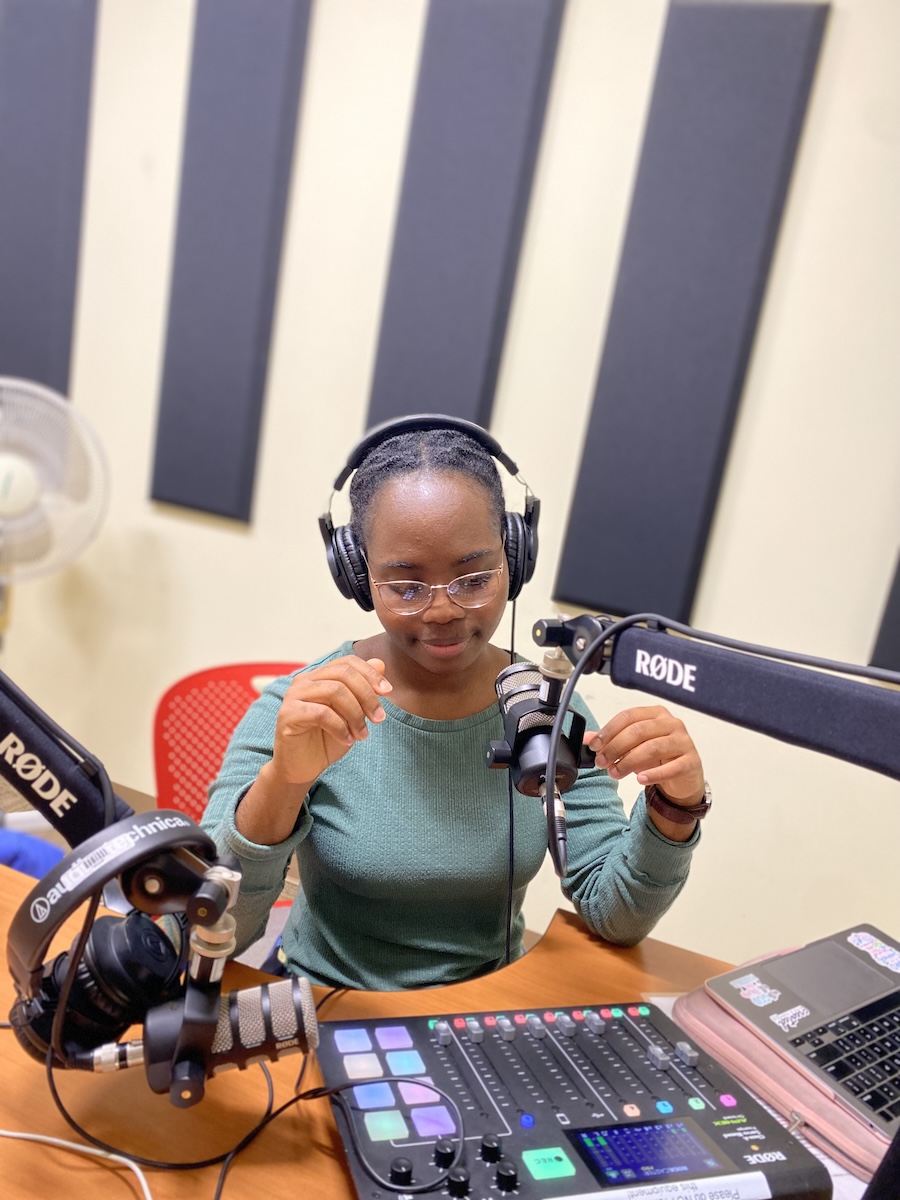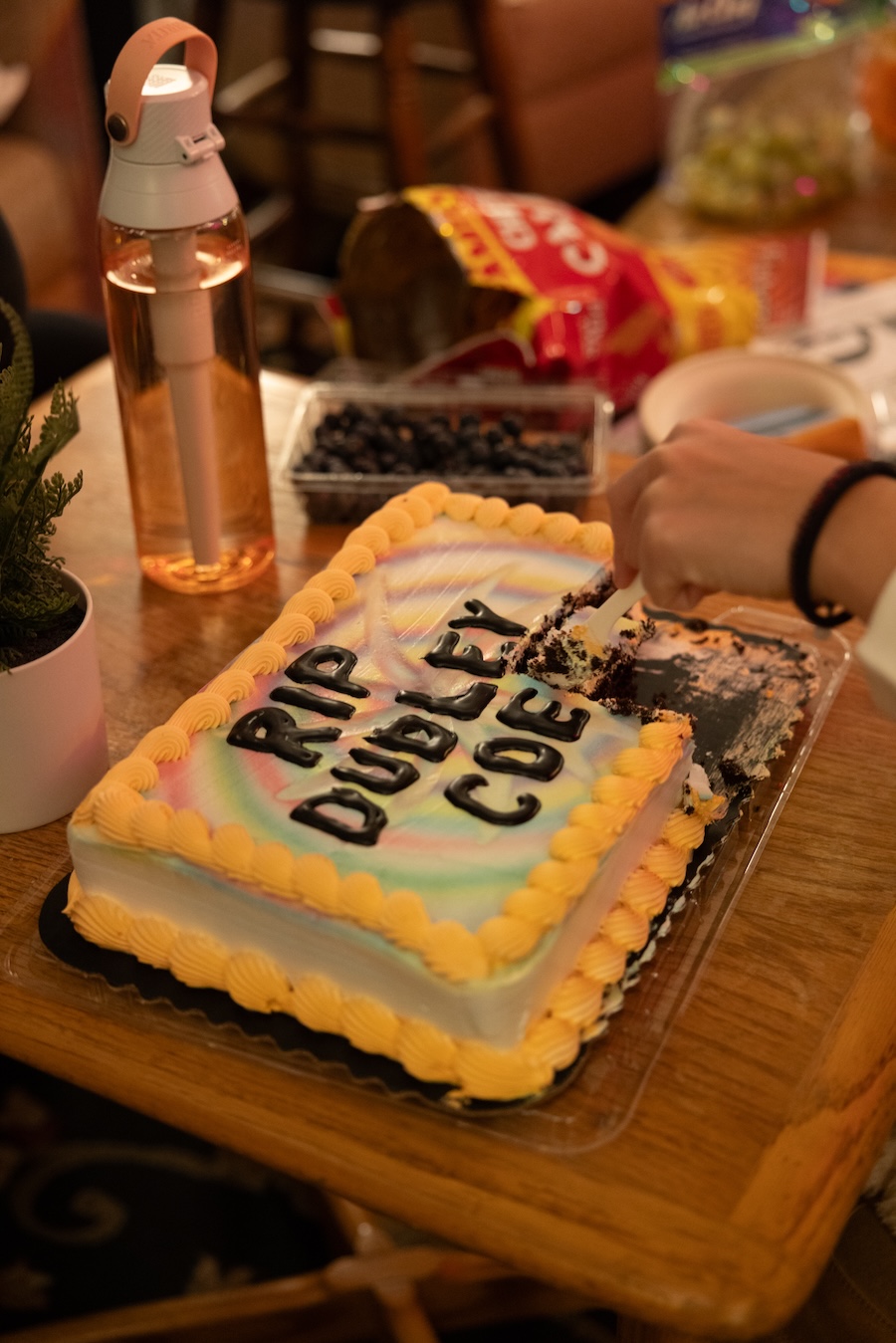Bowdoin Honors Students on Sarah and James Bowdoin Day
By Rebecca GoldfineBowdoin celebrated its highest ranking students at the College’s annual Sarah and James Bowdoin Day on Friday, October 30, 2015.
Sarah and James Bowdoin scholarships are given to the top 20 percent of students who have the highest grade point average based on last year’s academic work. Each scholar who earned a GPA of 4.0 also receives a Book Award, which bears a replica of the early College bookplate found on books in the Library’s James Bowdoin Collection. In this year’s ceremony, 261 students were named Sarah and James Bowdoin scholars, and 17 received Book Awards.
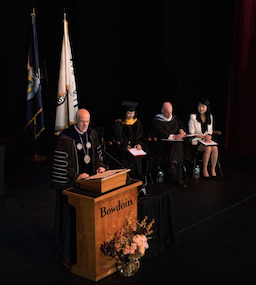
President Clayton Rose, in his welcome address, pointed out that the accolades offered to students on this day are not earned easily. “Ours is a rigorous academic program with standards of excellence that are challenging and with expectations by faculty that are high,” he said. “The level of accomplishment and the outstanding achievement demonstrated by our students today require intense focus, a deep pride in one’s work, and a passion for learning.”
The annual fall ceremony includes two addresses, one by a highly recognized practitioner in a liberal arts discipline, and the other from a distinguished Bowdoin student. This year’s guest speaker was Jeannette M. Wing, who, as corporate vice president of Microsoft Research, is in charge of the company’s research labs worldwide. Lucy Chuying Luo ’16 gave the student address.
Dr. Wing joined Microsoft Research in 2013 after holding positions in academia and government — most recently at Carnegie Mellon University, where she was President’s Professor of Computer Science. She has also worked at the National Science Foundation as assistant director of the Computer and Information Science and Engineering Directorate. Wing earned her bachelor’s, master’s and doctoral degrees from the Massachusetts Institute of Technology.

In her address, “Computational Thinking,” Wing began by prophesying that computational thinking will be as fundamental a skill as reading, writing and arithmetic by the mid-21st century. She defines computational thinking not as computer literacy or computer programming, but rather as the thought processes involved in formulating a problem and expressing its solution in such a way that a computer — human or machine — can effectively carry it out. (Humans compute, therefore she includes them in her definition.) “It is a kind of thinking that can be with you for life and useful for life,” she said.
Wing said that computational thinking has influenced a wide range of fields, including biology, journalism, archaeology, medicine, journalism, physics and more. In her talk, she zeroed in on the need for K-12 schools to incorporate computational thinking into their curricula, and she praised the United Kingdom for its mandate that every student learn some kind of computing. “To me this is a grand achievement,” she said, but she added that this educational push is happening in schools and universities around the world.
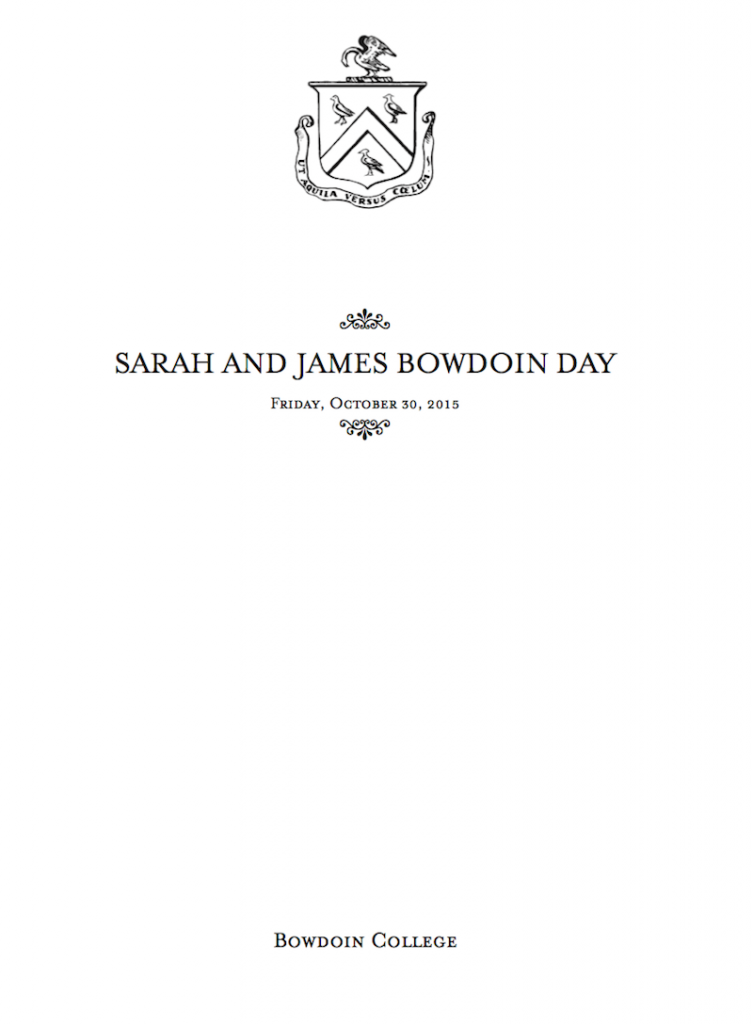
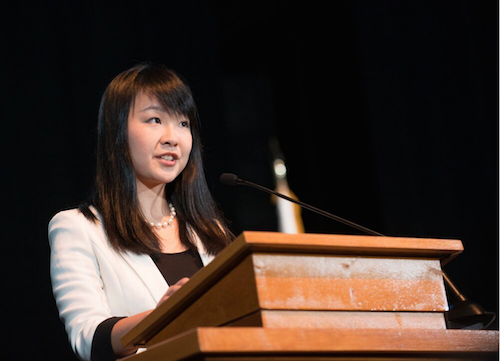
Luo is majoring in government and mathematics, and minoring in computer science. In her speech, “The Virtue of Not Knowing,” she spoke about how “not knowing” allows us to approach the world more openly, and keeps us humble. “This gift prepares us with a fresh mindset to learn without preconceived prejudices. A gift that allows us to be attentive to our senses and better absorb objective information. A gift that motivates us to ask more questions,” she said, adding that this stance is also a virtue “that makes us better listeners because we are more interested in hearing what others have to say than validating what we believe we already know.” Read the full text.
The Almon Goodwin Prize was awarded to seniors Talia Cowen, Megan Freiberger and Caroline Pierce. This award is presented to one or more members of Phi Beta Kappa chosen by a vote of the Board of Trustees of the College. The other Phi Beta Kappa members from the Class of 2016 are William Danforth, David Levine, Erin McKissick, Haley Miller, Benjamin Pallant, Harry Rube, Charlotte Rutty and Giap Vu.
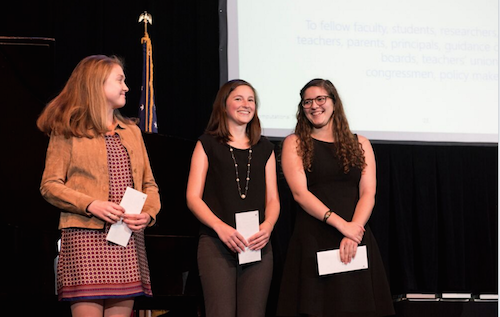
For the ceremony’s processional, pianist Matthew Maguire ’19 played The Water Music Overture by George Frideric Handel, and he performed Franz Joseph Haydn’s Sonata in E-flat Major for the recessional. He also accompanied the singing of the alma mater, “Raise Songs to Bowdoin.”
Bowdoin began recognizing James Bowdoin scholars in 1941 to honor undergraduates who distinguish themselves by excellence in scholarship and to commemorate the Honorable James Bowdoin III (1752-1811), the College’s first patron. James Bowdoin III – who asked that the institution be named after his father – was an agriculturist, art and book collector, and diplomat who served as Thomas Jefferson’s minister plenipotentiary to Spain.
By faculty vote in 1997, this commemorative day and scholarly distinction were changed to recognize both Sarah and James Bowdoin, who were married from 1780 until his death in 1811. Like her husband, Sarah Bowdoin gave many gifts to the College, including most of the Bowdoin family portraits which were bequeathed to Bowdoin College upon her death.

